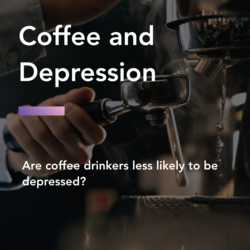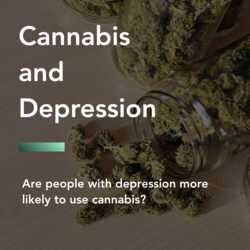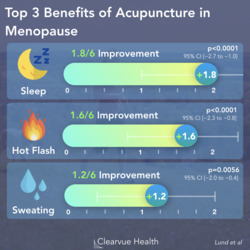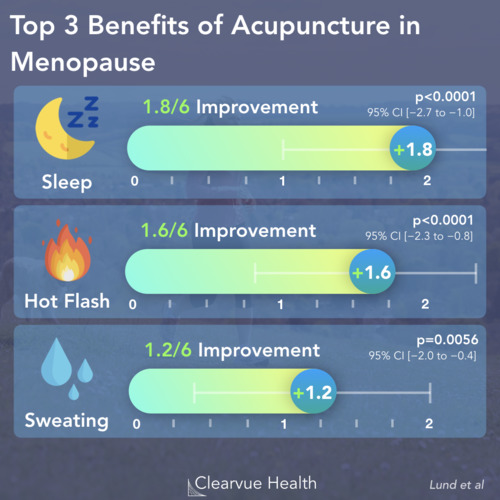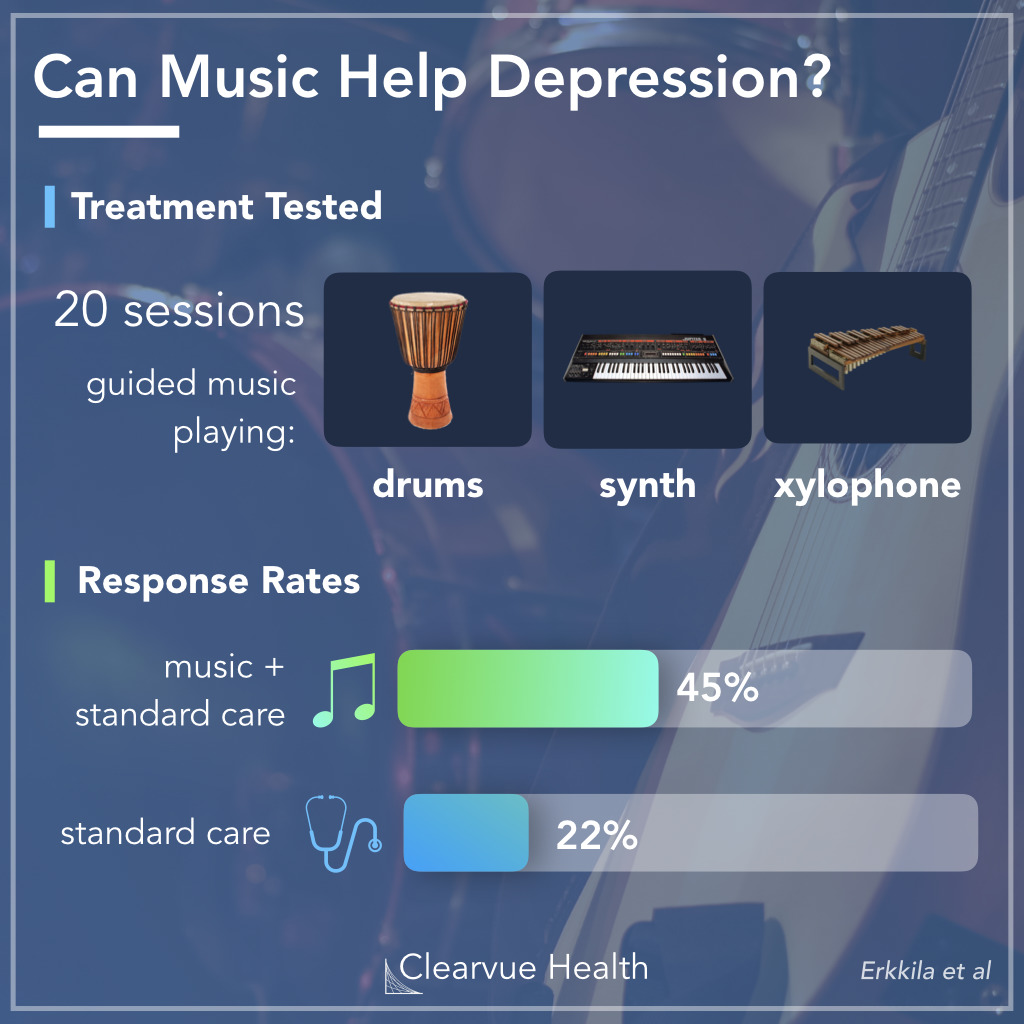
According to the NIH, 17.3 Million American adults had at least one episode of major depression every year, making it one of the most common conditions in the United States.
Depression is also a major driver of mortality. According to the CDC, about 45,000 die annually from suicide in the United States.
Medications work well for depression, but they are only one part of the picture. Not all patients respond well to medication, and they are not always effective on their own in treating depression. Medications work best as part of a comprehensive treatment strategy.
Music therapy has been suggested as a possible complementary therapy for depression. However, previous studies have been relatively small and of lower quality.
A team out of Finland looked to change that by conducting a higher quality clinical trial of music therapy.
Source: Individual music therapy for depression: randomised controlled trial.
Music Therapy Study Overview
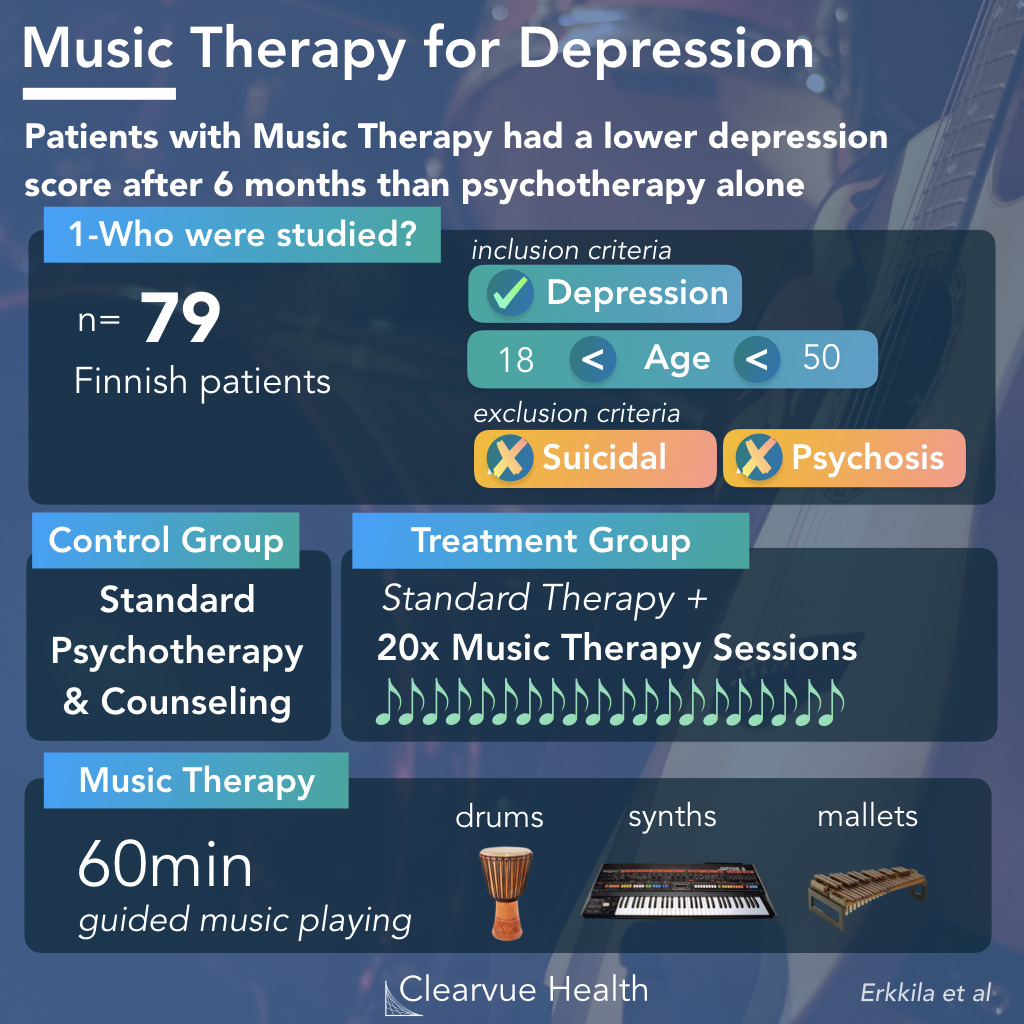
Researchers split 79 patients with a Major Depression diagnosis into a treatment group and control group.
All patients received psychotherapy, counseling, and medication if needed. Only patients in the treatment group received music therapy from train music therapists who encouraged patients to play music on a drum, percussion instrument, and a mallet instrument.
Source: Individual music therapy for depression: randomised controlled trial.
Music Therapy & Depression Symptoms
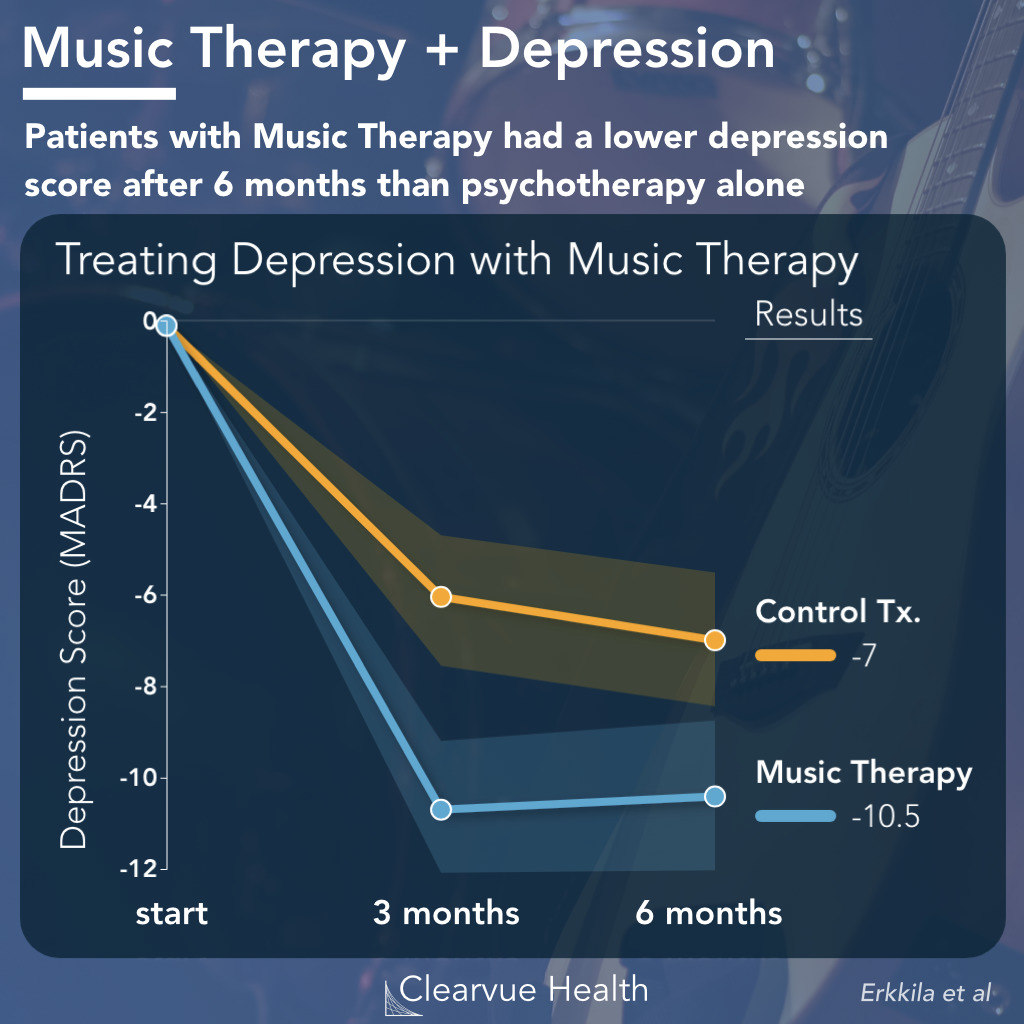
Researchers found a rapid improvement in depression symptoms over 3 months in the patients who received music therapy. At the end of the study, patients who received music therapy had a significantly higher improvement in their depression symptoms than control patients who only received standard depression treatments.
Source: Individual music therapy for depression: randomised controlled trial.
Music Therapy & Anxiety Symptoms
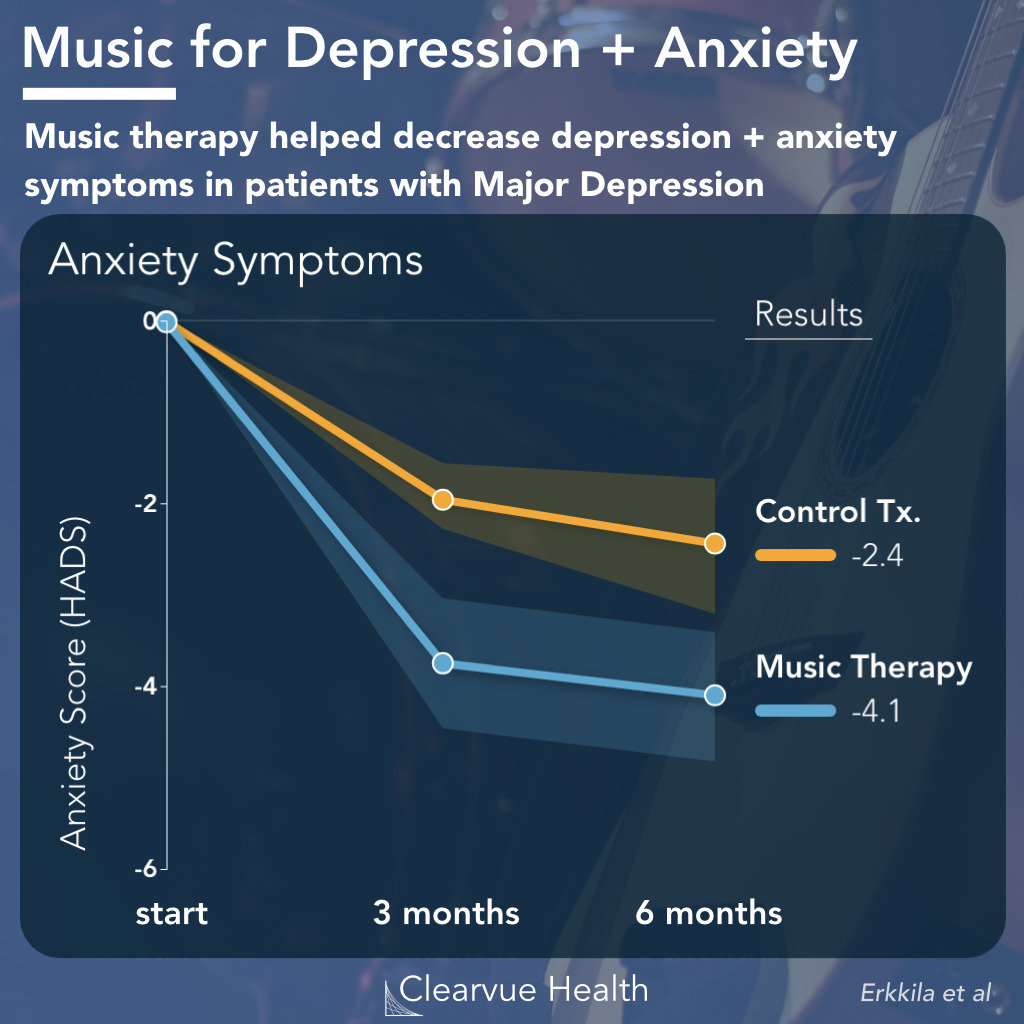
Researchers also looked at changes in anxiety symptoms. Anxiety is a common comorbidity with depression, meaning that depressed patients often have anxiety as well.
They found that over the course of the study, patients who received music therapy had significantly fewer anxiety symptoms compared to those who did not.
While this study was not designed to look specifically at Anxiety Disorders, other studies have found music therapy to be an effective treatment for anxiety when used alongside standard therapies.
Key Takeaways
One of the most important takeaways from this study is that music therapy can make a significant impact for many depressed patients when used alongside standard therapies.
Consistent with previous research, patients in this study were significantly more likely to at least partly recover from depression when they received music therapy.
While the study only looked at one type of music therapy, it would be interesting to see if music in general, both listening and playing, has any impact on depression.
One possible weakness of this study was that the control patients did not receive the same amount of therapy as music therapy patients. From this study design, we do not know whether it was the "music" that led to the improvements seen, or whether these improvements came from having more therapy overall.
All in all, this study provides good support for what looks like a great therapeutic option for depressed patients.






